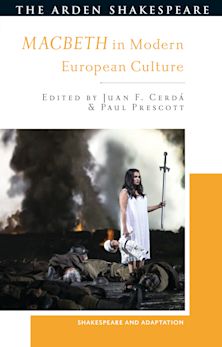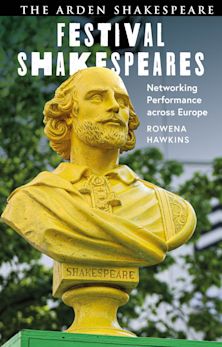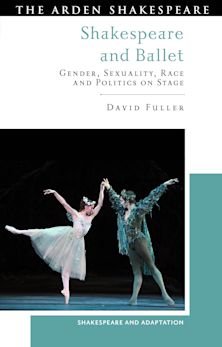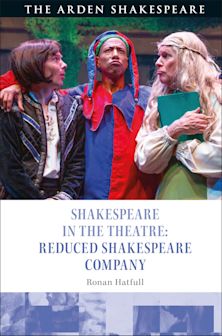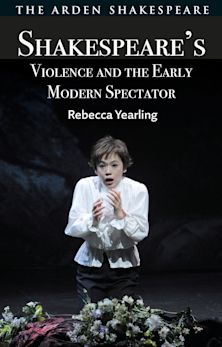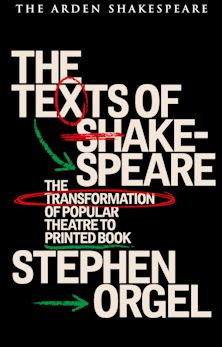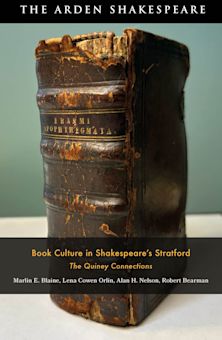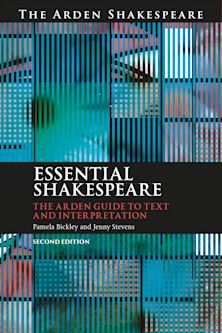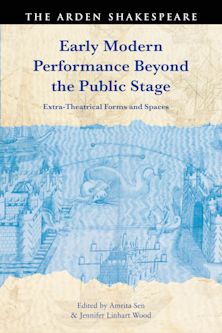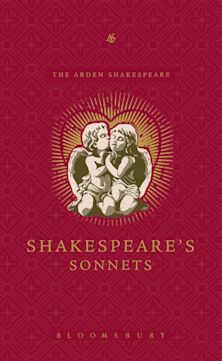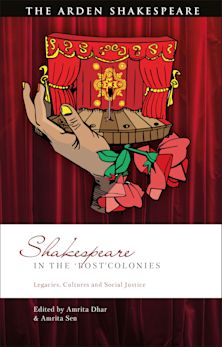- Home
- ACADEMIC
- Drama & Performance Studies
- Shakespeare Studies and Criticism
- Multisensory Shakespeare and Specialized Communities
Multisensory Shakespeare and Specialized Communities
Multisensory Shakespeare and Specialized Communities
You must sign in to add this item to your wishlist. Please sign in or create an account
Description
How can theatre and Shakespearean performance be used with different communities to assist personal growth and development, while advancing social justice goals?
Employing an integrative approach that draws from science, actor training, therapeutical practices and current research on the senses, this study reveals the work being done by drama practitioners with a range of specialized populations, such as incarcerated people, neurodiverse individuals, those with physical or emotional disabilities, veterans, people experiencing homelessness and many others. With insights drawn from visits to numerous international programs, it argues that these endeavors succeed when they engage multiple human senses and incorporate kinesthetic learning, thereby tapping into the diverse benefits associated with artistic, movement and mindfulness practices.
Neither theatre nor Shakespeare is universally beneficial, but the syncretic practices described in this book offer tools for physical, emotional and collaborative undertakings that assist personal growth and development, while advancing social justice goals. Among the practitioners and companies whose work is examined here are programs from the Shakespeare in Prison Network, the International Opera Theater, Blue Apple Theatre, Flute Theatre, DeCruit and Feast of Crispian programs for veterans, Extant Theatre and prison programs in Kolkata and Mysore, India.
Table of Contents
Abbreviations
Introduction: 'The Five [or more] Best Senses'
Chapter One. 'In Mine Own Throat': The Power of Breath and Voice
Chapter Two: Hearing 'the Owl Shriek': Shakespearean Soundscapes
Chapter Three. 'Such Branches of Learning': Shakespeare and Learning Differences
Chapter Four. 'Touch of nature': Expanding Shakespearean Sensory Palates
Chapter Five: 'Weight of pain': Trauma-informed Shakespeare for Veterans
Chapter Six: 'The rich advantage of good exercise': Physicality, Art and Mindfulness In Prison Shakespeare
Chapter Seven: 'The Open Ear of Youth': Shakespeare through Physical and Expressive Arts
Notes
Bibliography
Index
Product details

| Published | 25 Jan 2024 |
|---|---|
| Format | Ebook (Epub & Mobi) |
| Edition | 1st |
| Extent | 288 |
| ISBN | 9781350296435 |
| Imprint | The Arden Shakespeare |
| Series | Shakespeare and Social Justice |
| Publisher | Bloomsbury Publishing |
About the contributors
Reviews
-
Sheila Cavanagh's book deftly collaborates and extends across borders: intellectual, disciplinary, sensory, institutional and geographic. Her scope is radically inclusive, and the specialized communities she discusses range widely in character and situation. What I admire about this research is its urgent social commitment, its clear-eyed view of cultural capital, and its creative and respectful partnership with theatre makers of all kinds. Cavanagh has an eye for the compelling anecdote or quotation that brings a context or individual to life, and her book is always alert to the irreducible individuality of the encounters she discusses. If you are sceptical about Shakespeare in such specialized settings (I think I was before reading this), Cavanagh's work, combining analysis with joy and academic insight with personal empathy, will persuade you to think again.
Emma Smith, University of Oxford, UK
-
Sheila Cavanaugh is a unique voice in the Shakespeare world: she not only studies Shakespeare productions in every part of the globe, but in this new book she reveals the relevance of Shakespeare to include the most disenfranchised. This is an original, haunting book.
Tina Packer, Founding Artistic Director, Shakespeare & Company, USA

ONLINE RESOURCES
Bloomsbury Collections
This book is available on Bloomsbury Collections where your library has access.












